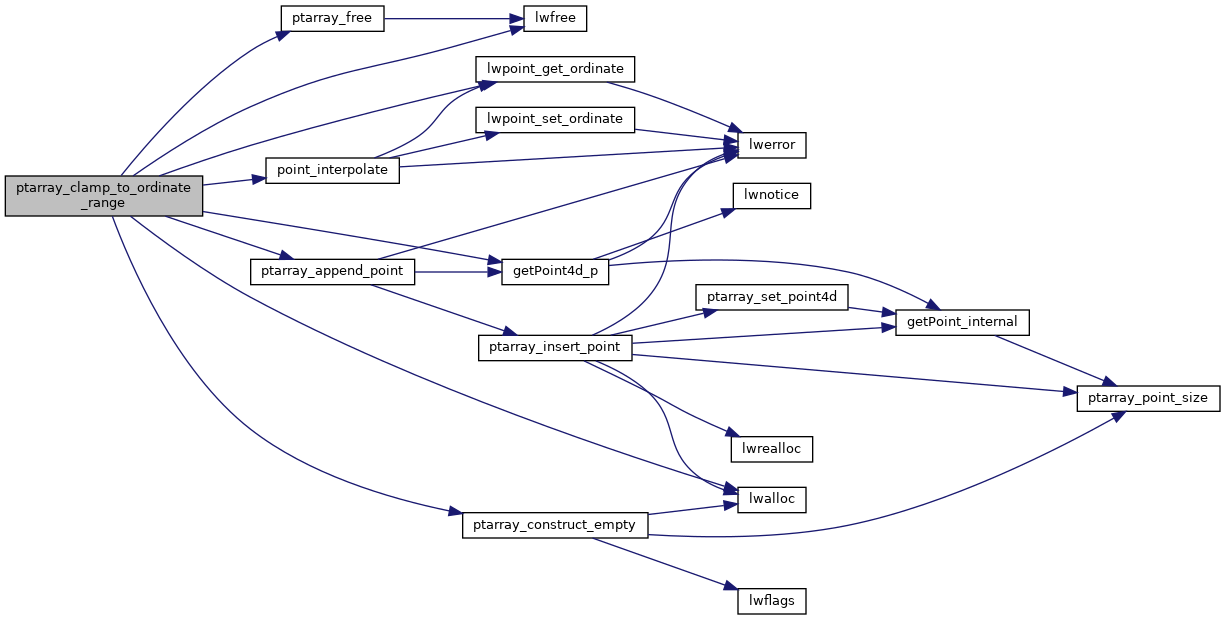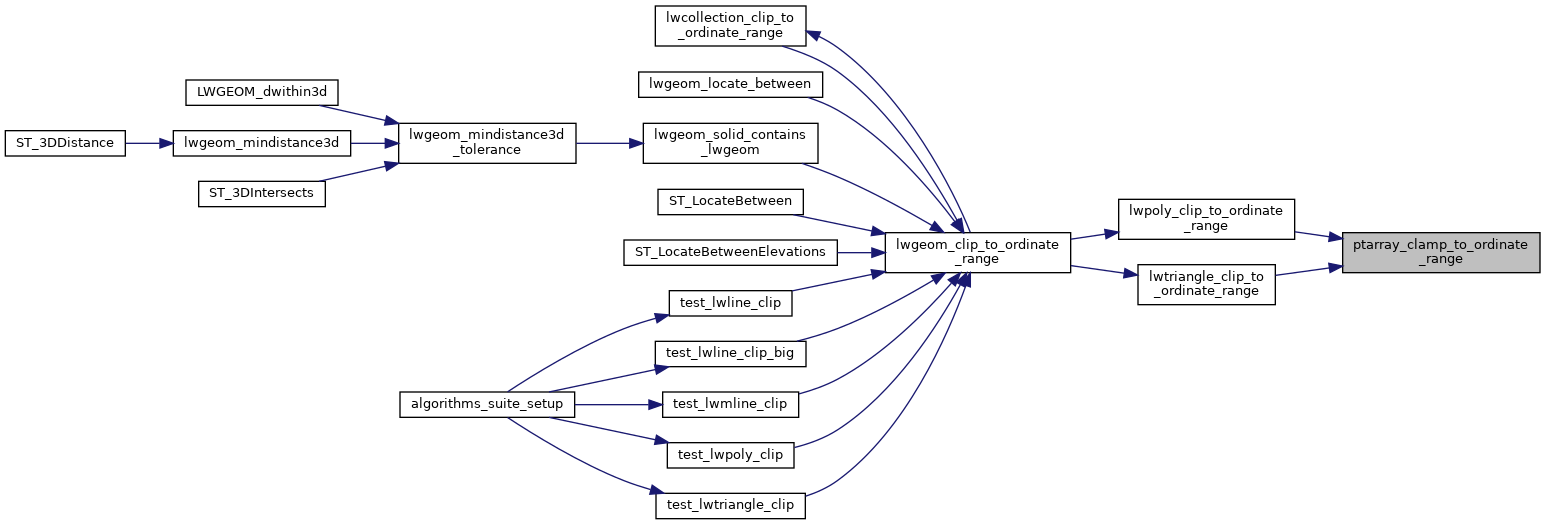◆ ptarray_clamp_to_ordinate_range()
|
inlinestatic |
Definition at line 441 of file lwlinearreferencing.c.
POINTARRAY * ptarray_construct_empty(char hasz, char hasm, uint32_t maxpoints)
Create a new POINTARRAY with no points.
Definition: ptarray.c:59
int getPoint4d_p(const POINTARRAY *pa, uint32_t n, POINT4D *point)
Definition: lwgeom_api.c:125
int ptarray_append_point(POINTARRAY *pa, const POINT4D *pt, int allow_duplicates)
Append a point to the end of an existing POINTARRAY If allow_duplicate is LW_FALSE,...
Definition: ptarray.c:147
double lwpoint_get_ordinate(const POINT4D *p, char ordinate)
Given a POINT4D and an ordinate number, return the value of the ordinate.
Definition: lwlinearreferencing.c:255
int point_interpolate(const POINT4D *p1, const POINT4D *p2, POINT4D *p, int hasz, int hasm, char ordinate, double interpolation_value)
Given two points, a dimensionality, an ordinate, and an interpolation value generate a new point that...
Definition: lwlinearreferencing.c:316
Definition: liblwgeom.h:399
Definition: liblwgeom.h:412
References POINTARRAY::flags, FLAGS_GET_M, FLAGS_GET_Z, getPoint4d_p(), LW_FALSE, LW_ON_INTERRUPT, lwalloc(), lwfree(), lwpoint_get_ordinate(), POINTARRAY::npoints, point_interpolate(), ptarray_append_point(), ptarray_construct_empty(), and ptarray_free().
Referenced by lwpoly_clip_to_ordinate_range(), and lwtriangle_clip_to_ordinate_range().
Here is the call graph for this function:

Here is the caller graph for this function:
